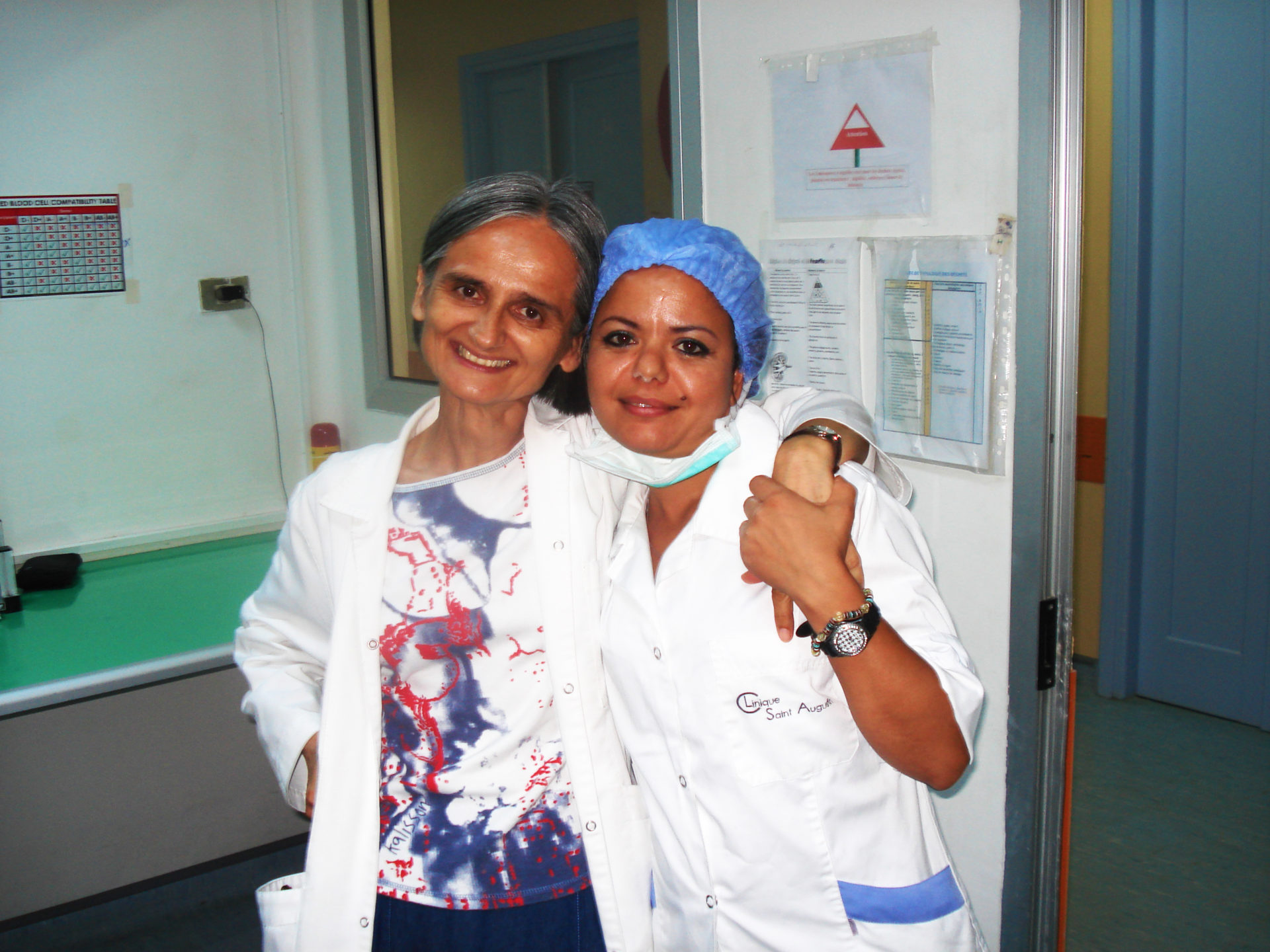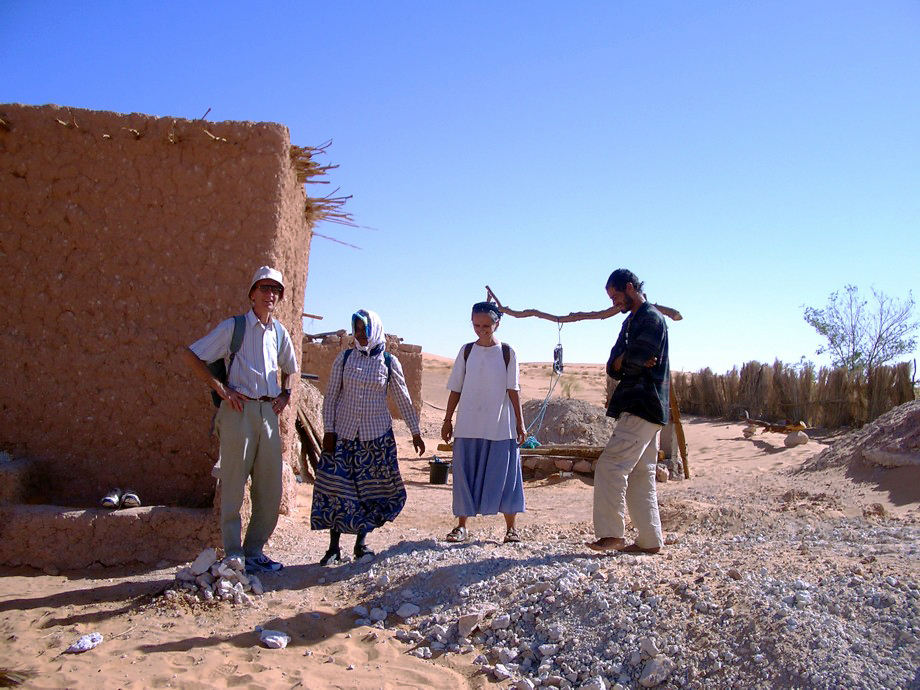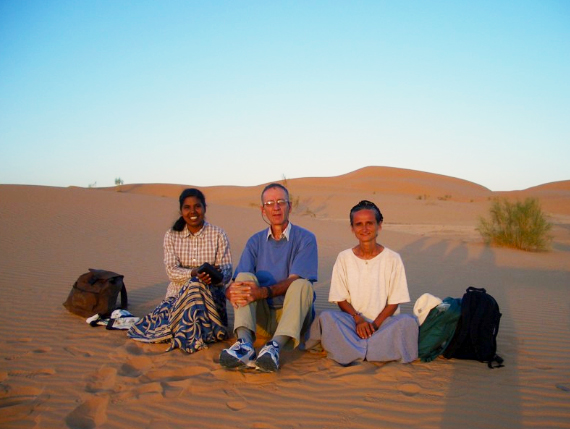
“I fear the man who has read only one book,” said the famous Italian philosopher and theologian Thomas Aquinas. A book could be written about the inspiring yet simple life of Little Sister of Jesus Vesna Zovkić, and this would be a book which everyone should read. Sister Vesna interwove her life with human stories, …
“I fear the man who has read only one book,” said the famous Italian philosopher and theologian Thomas Aquinas. A book could be written about the inspiring yet simple life of Little Sister of Jesus Vesna Zovkić, and this would be a book which everyone should read. Sister Vesna interwove her life with human stories, solidarity, and friendship with God as well as people.
Sister Vesna’s rich personal experience includes living in Kosovo in the 1980s, in France with nomadic Roma, with refugees from Bosnia and Herzegovina in Gašinca during the war in the 1990s, in North Africa, and finally, volunteering in the migrant center in Opatovac during the first wave of migrants in 2015.
Sister Vesna dedicated her life to God in the Little Sisters of Jesus, an international order focused on ecumenical and interreligious dialogue. She offers her love and sincere smile to everyone, but especially to those who are different and those in need of a kind word in the uncertain and unstable times in which we live.
Sister Vesna translated the book Charles de Foucauld: In the Footsteps of Jesus of Nazareth, written by Little Sister of Jesus Annie, into Croatian. This book is also an introduction to her own biography, which she so jealously and modestly keeps.
“[Charles de Foucauld] lost his faith at an early age and found it again thanks to the Muslims of Morocco. Thus, it was not Christians who encouraged him to seek God, but Muslims – an unusual solidarity whose reasons only God knows. At the beginning of the last century, Brother Charles lived his last years in the Algerian Sahara, seeing every man as a brother, whether a Muslim, Christian, or Jew. He was glad that his house was called a brotherhood,” said Sister Vesna.
“Learn to live together or we will all perish together”
She also translated the book Voices Need to be Raised: Welcoming Migrants, an Appeal to Courage, by Benoist de Sinety, French priest and Vicar General of the Archdiocese of Paris, which caused controversy. Certainly, as Sister Vesna herself notes, even the title will not appeal to everyone. Bishop Božo Radoš commented that this book “cures chronic diseases of prejudice, fear, superficiality, and cynicism that easily dominate our subconscious.”
“The author is clear that accepting migrants requires a certain courage. Not everything will be ‘nice and cool.’ He also says that fear blinds us and makes us cruel, and politicians take advantage of this fear by spreading this dangerous idea of the foreigner who would inevitably be our enemy. But we have no choice but to open our hearts and learn to live together, or we will all perish together,” explained Sister Vesna.
At the age of 22, she joined the order of the Little Sisters of Jesus, which, as she pointed out, was a surprise even for her. “While I was looking with the passion of youth for something worth living and giving everything for, I didn’t even know that I was actually looking for God. And when one day I saw God, who is Love itself, I had to choose between married life and pious life. In the end, I chose to be a Sister to every man instead of a wife and mother. All of the human loves are still there, they didn’t disappear. They just became part of one infinitely greater Love,” sister Vesna explained.
She was attracted to the community of the Little Sisters of Jesus, among other things, by the words of Sister Magdeleine Hutin, the founder of the order: “Before becoming a nun, become a human being.”
Sister Vesna was in Kosovo in the 1980s, where she said she learned her first and most valuable lessons about diversity, for which she is deeply grateful. It was there, she said, that she realized for the first time that she should give up culture comparisons and that her culture should not be used to judge others, as it is not necessarily the best.
“Kosovo revealed to me the beauty of diversity, complementarity. No one has everything. We all have something that we can give to others and there is always something that can be learned. In Kosovo, I discovered the beauty of community and solidarity, the beauty of the Albanian language. I also discovered the other side, of course. I can’t come to terms with the position of women, but I also can’t reduce my experience to just that,” sister Vesna explained.
“There is no ideal country, no ideal culture”
Between 1992 and 1996, sister Vesna lived with refugees from Bosnia and Herzegovina in the Gašinca Refugee Center near Đakovo, in Croatia, after she and her Sisters were expelled from Aljmaš in 1991. The following year, she asked her superiors for permission to go live in Gašinca with one of her Sisters.
“We bought a second-hand camper trailer so as not to take up space for others. From that period, I remember the horrors of war, a lot of suffering and tears, but I also remember incredible humanity and solidarity. The outbreak of the war between Bosniaks and Croats was particularly painful, but even that did not stop us from still socializing together, celebrating Christmas and Eid together. You have no idea how many wonderful people I met there, who today I can say have actually become my family. And all of them are Muslims,” Sister Vesna described.
After September 11th, 2001, when everyone began arguing that the clash of civilizations was inevitable and that people were so different that co-existence was impossible, Sister Vesna asked for permission to go to an Islamic country in search of a ‘common denominator.’
“And so, I found myself in Algeria in 2002, then in Libya and Tunisia until 2014. In the end, you see that everyone has a common need to love and be loved. Of course, there is no ideal country or ideal culture. However, I was deeply moved by their hospitality. I was deeply moved by the Sahara nomads who have almost nothing and share with you what little they have, even though they are seeing you for the first time,” said Sister Vesna.

She also went on a mission to France with traveling Roma. From this experience, she says she remembers first and foremost the wonderful people. However, she remembers the widespread contempt, which she personally felt. “If they see you leaving your caravan or entering a shop with one of your Roma friends, you are often addressed without any respect. We were lucky if we could find a parking space near the shopping center because that meant having water and a proper toilet nearby. Sometimes I used to quickly wash my hair over the sink, needless to say people looked at me,” Sister Vesna recalled.
She also remembers the most beautiful masses, Easter and Christmas celebrations under the open sky in the courtyard of a monastery with an altar made of a few planks between the caravans. There were unforgettable songs on violins played by truly talented musicians, and chairs scattered around the field.

It was hard and painful for her when her Roma friends had to stop their caravans in a parking lot in a residential area, near the hospital where their child was staying due to severe bronchitis. “One of the tenants called the police because nomads are not allowed to stay in regular parking lots. The policeman who came to investigate heard from the parents that they were there because of a sick child, and when he saw that it was a very polite and orderly family, he said to them, ‘Excuse me, they told us that there are Roma people parked here!’ These people answered that they were Roma, but the policeman didn’t believe them. That hurt them a lot,” said Sister Vesna.
“Cheap emotions and narrow-minded patriotism”
She also volunteered at the transit center in Opatovac. As she pointed out, in 2015, when a wave of migrants passed through Croatia, there was more sympathy than now.
“It seems to me that we had a little more sympathy then, although it wasn’t talked about much in either society or the Church. Perhaps it was more acceptable for people to see men, women, and children coming, whereas today, it’s mostly men. Of course, there are still women and children today, but fewer,” said Sister Vesna.
She pointed out that the borders are closed and that every attempt to cross is an extremely tiring and traumatic experience for young and healthy men, let alone women. “These are difficult, too difficult destinies, which we make even more difficult. We don’t realize that the time of hoarding and of great luxury has passed. The time of solidarity and sharing is coming. Otherwise, we will all perish,” said sister Vesna.
When asked how she views young people today when it comes to cultural diversity, she said, “I have the impression that there used to be broader perspective, that my generation in its youth was more interested in what was ‘on the other side of the fence.’ Nationalism is everywhere and unfortunately, more and more so every day. But, before that nationalism reached the youth, it reached the previous generations, those of us who raise these young people in one way or another.”
“Crossing borders is something that should characterize youth, and now I have the impression, possibly mistakenly, that young people prefer to close themselves off within the borders of their national and religious identity,” added Sister Vesna.
She thinks that regardless of age, a lot comes down to cheap emotions and narrow-minded patriotism. “Of course we need emotions, but all of life isn’t built on them. No such thing as cheap luck! Whatever it’s worth, it costs money, you need to make some kind of effort, raise your voice, ‘be the change we want to see in the world,’ as Gandhi says. I’m sorry that we are leaving such a chaotic society poisoned by corruption to young people. Because of this, many will not only peek into, but also definitely leave ‘the other side of the fence,’” lamented Sister Vesna.
The community of the Little Sisters of Jesus does simple manual labor out of solidarity with those who could not choose their occupation.
“I believe that the value of human life is not in our diplomas and knowledge. I am very grateful that for almost 40 years I worked mainly as a cleaner and manual worker, so I had the opportunity to see the world from a different perspective. There aren’t any first or second-class people, as is subtly implanted in our minds from all sides. Brotherhood implies equality and freedom,” Sister Vesna concluded.
Being human is not an easy task today. Admittedly, not because of competition, which is almost non-existent, but because of the Sisyphean urge to treat everyone and everything fairly, the way it should be – humanly. Sister Vesna is one of those people who should be an inspiration to us all.






